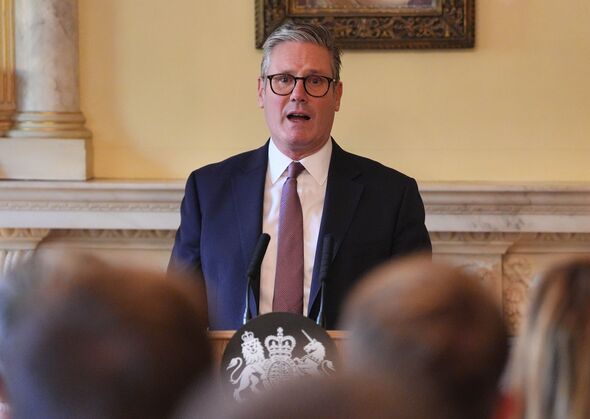
The new Labour government faces a backlash from charities over reports it plans to stick with Conservative proposals to reduce the annual welfare and sickness benefits bill by £1.3 billion.
The proposals would involve implementing controversial changes to the “work capability assessment” that were introduced last year by then-prime minister Rishi Sunak.
According to research from the Department of Work and Pensions (DWP), the changes would mean that some 450,000-500,000 fewer people will be considered to have limited capability for work.
As a result, they would face losing their benefits and come under pressure from the DWP and new teams of Jobcentre staff to find a job.
Helen Barnard, the director of Policy, Research, and Impact at the Foodbank charity Trussell Trust, responded to reports in the FT on the proposals, saying: “Very concerning if government goes ahead with cuts to disability benefits. This was always just cost saving.
“500,000 disabled people get poorer – very few move to work. Not increasing opportunity or helping anyone. Just hitting a group already facing hunger and hardship.”
Subsequently, she raised concerns that the government appears to be committed to cut the welfare benefits bill by £3 billion over four years.
Writing on X, she said: “If done through better support into work, better access to healthcare etc that’s good. But hard to see how doing it the right way can save that much money so quickly?
“Real danger this undermines positive plans to revamp employment support and moving away from punitive sanctions.”
The work capability assessment is used to decide eligibility for working-age incapacity benefits, whose claimants have risen by a quarter since 2019 to about 3.1mn. The cost to taxpayers is now equivalent to 1 percent of GDP, up from 0.74 per cent in 2019-20.
Disability rights activists have previously called on the Work & Pensions Secretary Liz Kendall to reverse the work assessment changes, arguing they would pose severe risks to vulnerable people living with some mental and physical conditions.
However, the minister has apparently been keen to lean into an idea of getting tough in order to combat the rising sickness benefits bill. Just this week, she triggered a row by suggesting Jobcentre staff might even visit people with mental health issues on hospital wards with a view to getting them into a job.
Just this week the Resolution Foundation think-tank urged the government against rushing ahead with the welfare cuts, warning that they would “degrade living standards” among poorer households.
It said pushing ahead with the cuts would narrow eligibility for the more generous benefits regime open to people who are considered unable to work or look for work because of a long-term health condition — with close to 500,000 people set to lose out.
Dropping the Tory plans would require the DWP to find £1.3bn in savings from elsewhere amid a tight government spending review ahead of this month’s Budget.
This morning the work and pensions minister Alison McGovern was asked by Times Radio why Labour was pressing ahead with plans made by the previous Tory government to amend work capability rules. She said Labour would come up with own measures to cut the welfare bill, but was unable to give details.
She said: : “Like all departments, the Department for Work and Pensions has to make savings because we are in a terrible financial situation. To be clear, on that point we will bring forward our own reforms because the last 14 years have been a complete failure when it comes to employment.”
Asked whether those who are not currently in work could expect to see their benefits cut, Ms McGovern said there had “always been rules” in the UK’s social security system, with a “duty on both sides”.
She said: “People who are receiving social security have a duty to comply with those rules and the government has a duty to help people.”
But she appeared to distance herself from the suggestion that Labour would follow the Conservatives’ blueprint, telling Sky News: “Like all departments, the Department for Work and Pensions has to make savings because the financial situation our country is in is not good at all.
“But I don’t think we should follow the advice of a Conservative government that failed over 14 years – so we will bring forward our own proposals.”
















